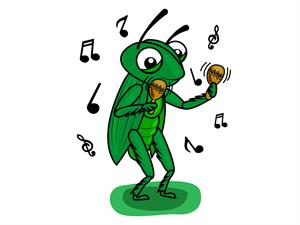PDF chapter test TRY NOW
The poetry of earth is never dead:
When all the birds are faint with the hot sun,
And hide in cooling trees, a voice will run
From hedge to hedge about the new-mown mead,
That is the grasshopper’s — he takes the lead
In summer luxury — he has never done
With his delights, for when tired out with fun
He rests at ease beneath some pleasant weed.
When all the birds are faint with the hot sun,
And hide in cooling trees, a voice will run
From hedge to hedge about the new-mown mead,
That is the grasshopper’s — he takes the lead
In summer luxury — he has never done
With his delights, for when tired out with fun
He rests at ease beneath some pleasant weed.
Explanation:
The sonnet opens with the poet stating that the "poetry of earth" is consistently alive. "The poetry of earth is never dead" explains how the earth will keep being wonderful and graceful forever. During summer, when the birds feel drained in the blistering summer and take cover under the shady parts of trees, a voice could be heard from the ground, taking the lead in the nature's song.
The voice that runs from hedge to hedge and around the newly cut grasslands (meadows) belongs to the Grasshopper. "A voice will run" suggests how the Grasshopper's voice is powerful and can be heard from far away. The Grasshopper takes control over the duty of continuing with the never-ending song in any event, such as during summer, as it is a luxury for him. The Grasshopper is fun-loving and cheerful in summer. When he gets tired of fun (singing and jumping), he goes under some pleasant weed (i.e. grass) to take rest.
The voice that runs from hedge to hedge and around the newly cut grasslands (meadows) belongs to the Grasshopper. "A voice will run" suggests how the Grasshopper's voice is powerful and can be heard from far away. The Grasshopper takes control over the duty of continuing with the never-ending song in any event, such as during summer, as it is a luxury for him. The Grasshopper is fun-loving and cheerful in summer. When he gets tired of fun (singing and jumping), he goes under some pleasant weed (i.e. grass) to take rest.

Grasshopper taking rest during summer
Nature is loaded with components that moderate the temperature to make the conditions livable for the living creatures. Along these lines, in any event, during unbelievable warmth, there are to be found in normal components like the "cooling tree" and "beautiful weed." The Grasshopper sings enthusiastically and offers effortlessness to every single one of the people who had gotten worrisome under the elements of the "blistering sun."

Grasshopper sings enthusiastically
Meanings of difficult words from the poem "On the Grasshopper and Cricket":
| No | Words | Meanings |
1. | Faint | Feeling weak and dizzy and close to losing consciousness |
2. | Hedge | A fence or boundary formed by closely growing bushes or shrubs |
3. | New-mown mead | It is a phrase used to depict freshly cut grass or hay |
4. | Delight | A feeling of great happiness or it is something that causes happiness or joy |
5. | Luxury | A condition of abundance or great ease and comfort : sumptuous environment |
6. | Grasshopper | Terrestrial plant-eating insect with hind legs adapted for leaping |
Reference:
National Council of Educational Research and Training (2008). Honeydew. On the Grasshopper and Cricket (pp. 118-119). Published at the Publication Division by the Secretary, National Council of Educational Research and Training, Sri Aurobindo Marg, New Delhi.
